Get Good Grades With These 24 Best Study Tips for School
Sep 21, 2024

YouLearn Team
How to Be a Better Student? School can be overwhelming. Between new classes, teachers, and peers, the transition into a new school year can feel like learning a whole new language. For many students, school is a maze filled with confusing obstacles and hidden traps. To emerge from the labyrinth, you need tips to help you find your way.
Learning to be a better student can help you make sense of the school environment. This guide will give you practical tips for school to help you access personalized learning and get back on track. YouLearn’s personal AI tutor can help you achieve your school goals by providing customized support to help you learn how you want to know.
Table of Contents
How Can I Do Better In School

If you are dissatisfied with your grades, don’t wallow in self-pity. Instead, try self-motivation. Believe in yourself and encourage yourself to stay focused on your work. Pick a goal or series of goals, and use that as your motivation.
Become an Active Learner
If you want to improve your grades, get involved in your classes. Listen attentively to your teachers and participate when you can. It may be challenging, especially if you have a shy personality, but participation will show your teacher that you care about their subject and want better grades.
Teachers typically base the grades on various factors, and participation is one of them. If you are shy, for more confidence, you can write down the questions before the class and then ask them. Another trick is to sit closer to the teacher so they can get to know you even more.
Take Good Notes
Taking thorough notes during a class will ensure you get all vital information. Note-taking is an essential skill that can also translate to better grades in college.
Don’t Be Afraid to Ask Questions
If you are experiencing problems with particular subjects, you can always ask your teacher or peers for help after the class. Another option is to ask your parents if they can afford a private tutor for you.
Create a Distraction-Free Zone for Homework
Find a quiet working place to handle your homework in a distraction-free environment. Put your phone aside or at least mute all notification sounds so you are not distracted. You can also use apps that lock a phone for a particular time.
Take Breaks While Studying
Studying for long periods without breaks can lead to burnout and decreased performance. Instead, take a 15-minute break after each 45 minutes of studying. Walk around your house, get some fresh air, think about getting better grades, or get a snack to fuel your brain. You can also reward yourself for each 45 minutes of productive work by doing something you enjoy. Breaking up the monotony of studying will also help you focus.
Study With Friends
Consider studying together with your fellow students. Group learning can help the group members motivate each other and be more productive. If such a study style suits you, you can organize such groups or become a member of an existing group. You can get together to study after classes or on weekends.
Keep Your Space Organized
Use one notebook per class, and keep your desk neat with papers and stationery. Try to clean up your desk regularly. This helps tremendously with limiting distractions.
Use a Planner
Use a planner to organize your time. It can be a paper planner or a mobile app. However, we recommend using a paper agenda book so your phone does not distract you. Write down all important due dates, test dates, and extracurricular activities.
Develop a Study Schedule
If preparing for a test or writing a research paper, break down your work into small chunks and allot work to specific periods. To avoid stress, do not procrastinate and wait until the last night before the test.
Take Care of Your Body
Make sure that your meals are nutritious, balanced, and varied. Your brain needs fuel to be productive. Never miss breakfast before school.
Get Enough Sleep
Establishing a regular sleep schedule is crucial for studying and learning to get good grades in high school. Try to wake up and go to bed simultaneously and get at least 8 hours of sleep each night.
Exercise Regularly
Staying fit is another critical factor that can help you perform better in school. Exercise daily, join a sports team, or participate in sports-related extracurricular activities outside of school.
Related Reading
• How to Pass a Test
• How to Be a Good Student
• Back to School Tips
11 Best Study Tips for School

1. Use You Learn AI For Better Learning
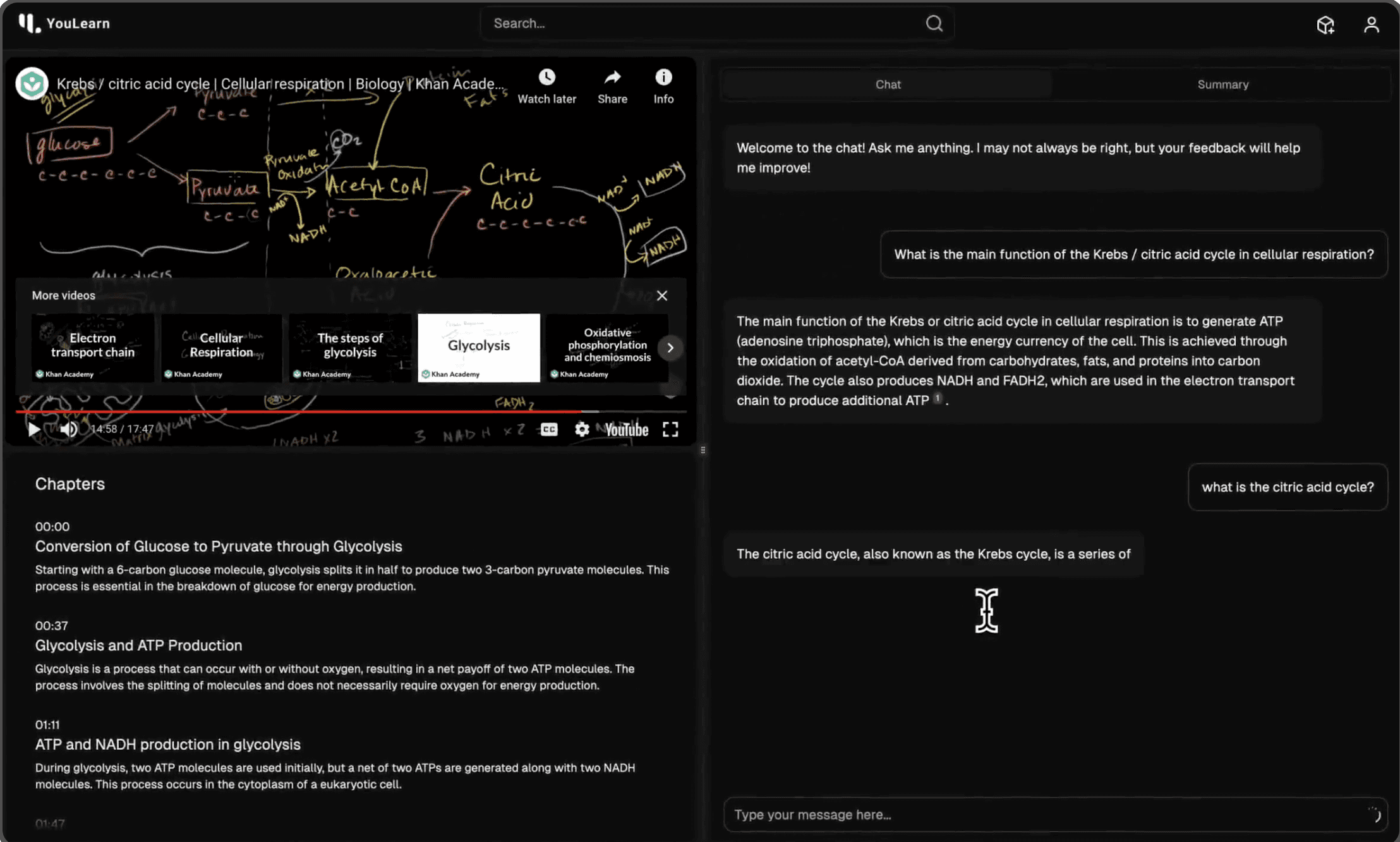
YouLearn is your AI tutor, designed to supercharge your learning from YouTube videos, PDFs, and slides. Our AI chats with you about the content, provides quick summaries and breaks information into digestible chapters. Whether you are a college student or a self-learner, we help you grasp material faster and more effectively. Just upload your content, and our AI transforms it into an interactive learning experience. With YouLearn, you're set to learn more intelligently, not harder. Learn anything with ease for free today with YouLearn's personal AI tutor.
2. Don’t Cram!
It might be tempting to leave all your studying for that big exam until the last minute, but research suggests that cramming does not improve longer-term learning. According to an article from the American Psychological Association, students may perform well on a test for which they’ve crammed, but that doesn’t mean they’ve truly learned the material. Instead of cramming, studies have shown that studying with the goal of long-term retention is best for learning overall.
3. Plan—and Stick To It!
Having a study plan with set goals can help you feel more prepared and can give you a roadmap to follow. Schwab said procrastination is one mistake students often must correct when transitioning to a university-level course load. “Often, students are used to less intensive workloads in high school, so one of my biggest pieces of advice is don’t cram,” says Schwab. “Set a study schedule ahead of time and stick to it.”
4. Ask for Help
You don’t have to struggle through complex material on your own. Many students are not used to seeking help in high school, but seeking extra support is expected in college. As our guide to pursuing a biology major explains, “Be proactive about identifying areas where you need assistance and seek out that assistance immediately. The longer you wait, the more difficult it becomes to catch up.” There are multiple resources to help you, including your professors, tutors, and classmates. Harvard’s Academic Resource Center offers academic coaching, workshops, peer tutoring, and accountability hours for students to keep them on track.
5. Use the Buddy System
Your fellow students are likely going through the same struggles that you are. Reach out to classmates and form a study group to go over material together, brainstorm, and to support each other through challenges. Having other people to study with means you can explain the material to one another, quiz each other, and build a network you can rely on throughout the rest of the class—and beyond.
6. Find Your Learning Style
Determining what study methods work best for you might take some time (and trial and error!). There are various ways to test your knowledge beyond reviewing my notes or flashcards. Schwab recommends trying different strategies through the process of metacognition. Metacognition involves thinking about your cognitive processes and can help you figure out what study methods are most effective for you.
Schwab suggests practicing the following steps. Before reading a new chapter or watching a lecture, review what you already know about the topic and what you expect to learn. As you read or listen, take additional notes about new information, such as related topics the material reminds you of or potential connections to other courses. Also, note down questions you have. Afterward, I summarize what I’ve learned and seek answers to my remaining questions.
7. Take Breaks
The brain can only absorb so much information at a time. According to the National Institutes of Health, research has shown that taking breaks between study sessions boosts retention. Studies have shown that wakeful rest is as important as practicing a new skill. Rest allows our brains to compress and consolidate memories of what we practiced. Ensure you allow enough time, relaxation, and sleep between study sessions so your brain will be refreshed and ready to accept new information.
8. Cultivate a Productive Space
Where you study can be just as important as how you study. Find a space that is free of distractions and has all the materials and supplies you need on hand. Eat a snack and have a water bottle close by so you’re properly fueled for your study session.
9. Reward Yourself
Studying can be mentally and emotionally exhausting, and keeping your stamina up can be challenging. Studies have shown that rewarding yourself during work can increase the enjoyment and interest in a given task. According to an article for Science Daily, studies have shown that small rewards throughout the process can help keep motivation rather than saving it all until the end. Next time you finish a particularly challenging study session, treat yourself to an ice cream or an episode of your favorite show.
10. Review, Review, Review
Practicing the information I’ve learned is the best way to retain information. Researchers Elizabeth and Robert Bjork have argued that “desirable difficulties” can enhance learning. For example, testing myself with flashcards is more complex than simply reading a textbook, but it will lead to better long-term learning. “One common analogy is weightlifting—you have to actually “exercise those muscles” to strengthen your memories ultimately,” adds Schwab.
11. Set Specific Goals
Setting specific goals along the way of my studying journey can show how much progress I’ve made. Psychology Today recommends using the SMART method: Specific: Set specific goals with an actionable plan, such as “I will study every day between 2 and 4 p.m. at the library.”
Measurable
Plan to study a certain number of hours or raise my exam score by a certain percentage to give me a quantifiable benchmark.
Realistic
My goals must be realistic so I don’t get discouraged. For example, if I currently study two hours per week, increase my time to three or four hours rather than 10. Time-specific: Keep my goals consistent with my academic calendar and other responsibilities.
How Do I Look Better In School

1. Prepping the Night Before
Get ready for school so you can look your best. Start by taking a shower. Good hygiene is essential to look healthy and friendly. If you're going to school, the movies, or even just going to church, no one wants to be that person with an odor problem. You can either shower the night before or in the morning, but if you shower at night, you have a few more minutes of sleep.
You don’t have to wash your hair every day. People with drier, coarser, thicker hair can get away with showering it once or twice a week. But wash your body every day to keep it smelling fresh, especially if you regularly exercise. Next, pick out what you want to wear. Find an item that you really like, such as a shirt, shoes, a belt, a necklace, or even socks. Center your outfit around that item and piece it together to make it look good.
Hang it in a particular place or leave it close to your bed. When you wake up, you don’t have to rush to pick out an outfit. If you wear a uniform, ensure it is ironed and hung up in your closet. You do not want your clothes to look wrinkled and worn.
2. Manage Your Morning Routine
When it’s time to get up for school, resist the urge to sleep for just a few more minutes. Instead, wake up on time and go to the restroom. Splash some water on your face to wake you up. Recent research says that hitting the snooze button can make you more tired. Avoid it if you can – it’ll make you run late anyway. Give yourself 5 or 10 minutes more than what you think you need. If you’re running behind, you’ll still be on time. It’s the worst feeling to be rushed in the morning and feel like you don’t have enough time to do what you need to get done.
Next, brush and floss your teeth. For a solid minute, brush your bottom and top teeth in a circular or up-and-down motion. Don’t forget to brush your tongue to prevent bad breath, too. Flossing and mouthwash kill bacteria and keep your breath smelling good for longer, too. If you eat breakfast early, consider gargling with mouthwash afterward to be extra fresh for school. If you have acne-prone or oily skin, wash your face with a mild cleanser every morning.
To spot-treat and cover your new breakouts, use a concealer made specially to hide and diminish acne. Experiment with how often you need to wash your face. For some people, two or three times is helpful. For others, once is as frequently as possible without drying out their faces. Also, only use oil-free skin products. Coconut, olive, and tea tree are the three oils that will help your skin. The rest, like minerals, will clog your pores and cause you to break out.
3. Hair Matters
Do you have gym class today? Then it might be best to brush your hair and do something basic with it. If it’s a lazier day, take the time to straighten or curl it. If you want straight hair, dry your hair while combing it with a flat brush. You may also want to straighten it with a thermal spray and a flat iron. If you want curly hair, skip the blow dryer, put some curling gel in your hair, and scrunch. You could also try "plopping" your hair, which will dry it sufficiently and curl it simultaneously.
4. Makeup Basics
If you wear makeup, apply a few touches if desired. Most girls look best with a natural look – a bit of concealer, blush, mascara, and a touch of lipgloss. If you’re worried about not wearing enough, bring those pieces to reapply at lunchtime. This could also be part of your beauty routine, but the later you do it, the longer it’ll last at school. If nothing else, reapply some lip gloss, and you’re ready.
5. Accessorize
Don’t forget to pick a few pieces to add to your outfit. However, stick to a couple of primary colors and an accent color – you don’t want to look like a clown with many colors. The rule is to put everything on and then take one thing off. Alternatively, stick to the either/or rule. You can either wear a necklace or a bracelet, for example. Wearing too many accessories quickly becomes overkill. They distract from each other, too. If you’re wearing just a necklace, it’ll pop more than if you’re wearing a necklace, earrings, and a bracelet.
6. Do One Last Check
Before you head out the door, do one last check. Is everything in your backpack? How’s the hair? Matching socks? Do you have extra clothes for the gym? A sweater if it gets cold? A hair tie? Headphones? Check, check, and check? Then you’re ready and looking good, for sure. If looking good is your top priority, keep a small bag in your backpack full of supplies. A brush, a small bottle of hair gel/spray, and anything else you may need.
7. Match Your Colors
Pay close attention to your outfit’s color scheme. Neutral colors like black, white, tan, and grey go with anything. Neutral-colored clothes should be your bread and butter. Also, as a rule of thumb, primary colors (red, blue, and yellow) and complementary colors (orange and blue, green and red, etc...) always go well together.
Nearby colors like indigo and purple harmonize nicely too. Mix and match colors until you find an outfit that pleases the eye. Remember to match the color of your shoes to the color of your outfit. Blue jeans match everything. If you’re feeling daring, try an eye-catching monochrome look like an all-red outfit.
8. Keep It Simple
If you wear orange stripes and green polka dots with two different jackets, your look is too loud. It’s better to err on simple and elegant than complex and busy. From there, you can accent your outfit with trendy shoes, bright accessories, or an attractive hairdo. On the other hand, if you just wear a T-shirt and jeans daily my style will get old. Try to find a reasonable middle ground.
YouLearn's Your AI Tutor

YouLearn is your AI tutor, designed to supercharge your learning from YouTube videos, PDFs, and slides. Our AI chats with you about the content, provides quick summaries and breaks information into digestible chapters.
Whether you are a college student or a self-learner, we help you grasp material faster and more effectively. Just upload your content, and our AI transforms it into an interactive learning experience. With YouLearn, you're set to learn more intelligently, not more intricate. Learn anything with ease for free today with YouLearn's personal AI tutor.
Related Reading
• How to Do Good in School
• Study Strategies for High School Students
• Best Study Method
• College Study Tips
• Active Study Methods
6 Essential Tools You Must Have In School
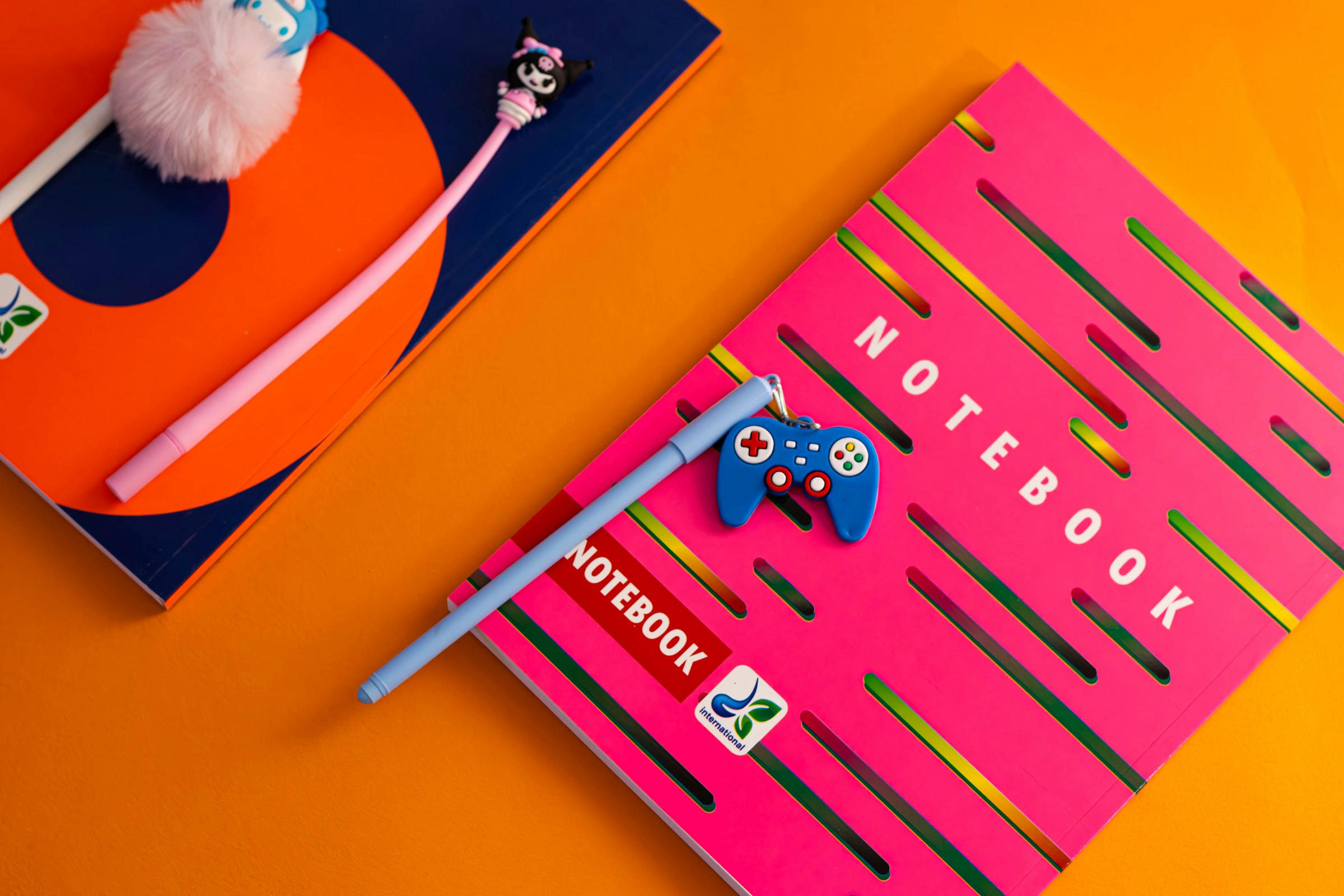
1. You Learn AI: Your Tutor

YouLearn is a personal AI tutor that helps students learn faster and more effectively from YouTube videos, PDFs, slides, and other educational content. With YouLearn, students can upload their course materials and receive quick summaries, interactive learning experiences, and even chat with an AI about the topics. This helps learners grasp information faster, break it into digestible chapters, and study smarter, not harder. For college students and self-learners alike, YouLearn is an advance.
2. Grammarly: Your Writing Assistant
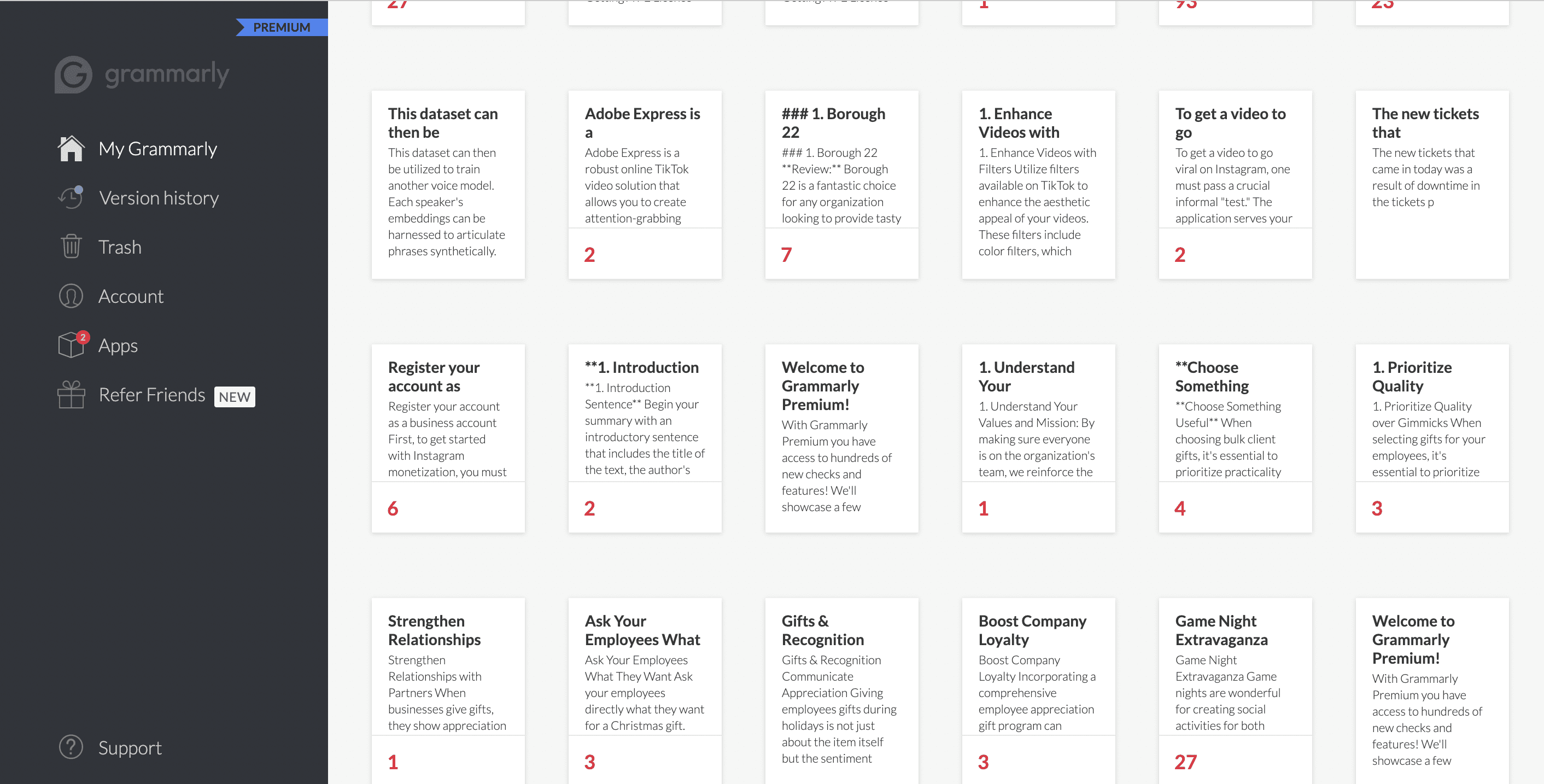
Grammarly is an online tool that helps students write better. The program provides real-time feedback on your writing so you can make sure it's clear, accurate, and error-free. Grammarly can help students in numerous ways, such as improving their writing quality, reducing errors, and improving overall writing. For example, suppose a student is writing an essay for a class.
In that case, Grammarly can help them identify grammar, spelling, and punctuation errors, as well as suggest better word choices and sentence structure. The premium version allows to check the plagiarism of the text.
Pros
Free to use
Easy-to-use interface
Accurate and reliable
Available in extension and integration
Cons
Don't support multiple languages
Some features may require a paid subscription.
3. Check-Plagiarism: Stay Original
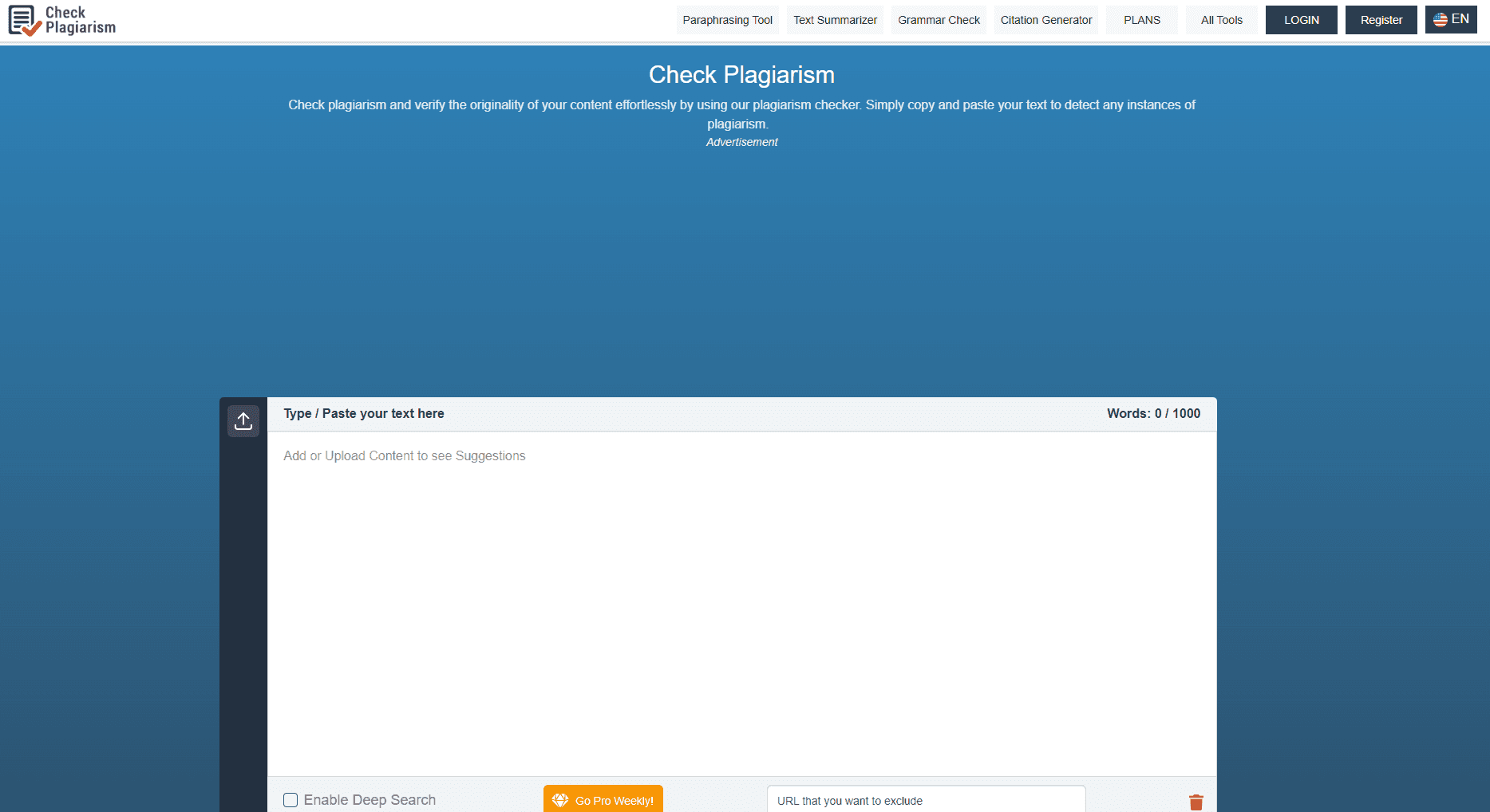
Check-plagiarism is an online tool that helps detect and prevent plagiarism. It is a great tool for students, researchers, and writers who want to ensure their work is original and properly attributed. With Check-Plagiarism, users can check for copied content from published works such as journals, books, websites, and other students' work.
Pros
Easy to use
Accurate results
Affordable
Cons
Ads in the free version
4. PowerSchool: Your Academic Hub
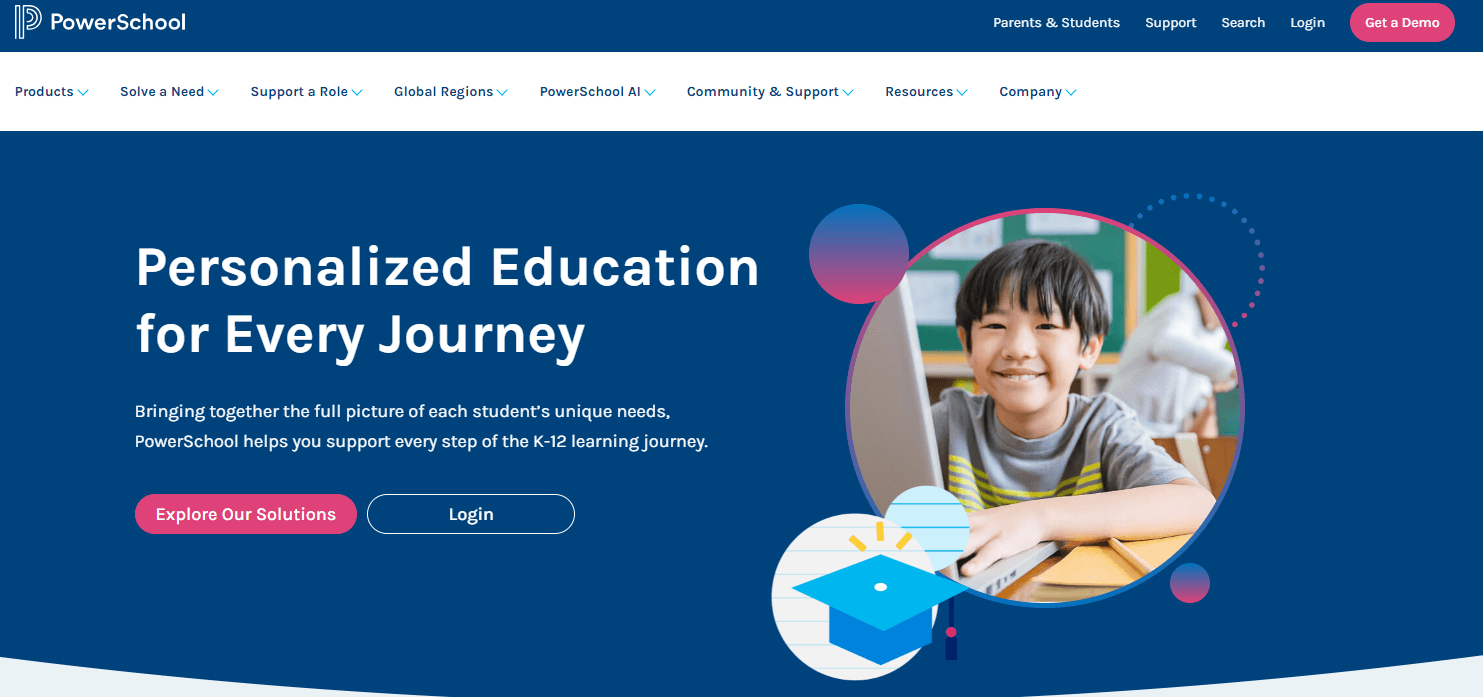
PowerSchool is an all-in-one educational platform designed to streamline communication between students, parents, and teachers. It helps students stay on top of their school life by giving them real-time access to their academic information, such as grades, attendance, assignments, and more.
PowerSchool can help students by giving them an easy way to stay organized and on track with their studies. For example, if a student is not getting good grades on papers, they can quickly review their grades and assignments to identify areas of improvement. They can also use the platform to track their progress and set goals to stay motivated.
Pros
Streamlined Communication
Real-Time Access
Easy Organization
Cons
Expensive
Technical Issues
5. Editpad.org: Your Text Editor

Editpad.org is an excellent online tool that provides students with a powerful text editor for writing projects and assignments. It's great for students who want to take their writing to the next level, as it provides a wide range of features to help them finish their work quickly and efficiently.
Editpad.org can assist students in various ways. Its grammar checker and text editor allow students to make their assignments quickly. It helps check for plagiarism in write-ups, and you can convert your handwritten notes into editable text. Moreover, it allows students to save their work quickly and efficiently so they can return to it anytime.
Pros
Easy to use and navigate
Allows students to save their work quickly and easily
You can check out the originality of the content
You can paraphrase the content
Cons:
No collaboration in real-time
6. Openstudy: Your Study Community
Openstudy is an online study community designed to help students learn and succeed. It provides a platform for students to ask questions, get help from subject experts, and connect with other students studying the same material. With Openstudy, students can find answers to their questions quickly, access quality study materials, and collaborate with other students to gain a deeper understanding of their subject matter.
Pros
Answer Questions
Collaborations
Point system
Cons
It is not a substitute for professional academic tutoring.
How Can I Have A Good Day At School

Awaken Your Body and Mind with Morning Yoga
A solid day at school starts at home, well before the first bell rings. There’s no better way to guarantee a good day than by starting it right! Several studies have shown that yoga helps kids be more in the present moment, thereby increasing their concentration at school. It also relaxes anxious kids and gives them the confidence to tackle anything that comes up during the day!
Keep The Mosquitoes Away
Mosquitoes are a real danger these days, and even a single stray bite can result in dangerous diseases like malaria or dengue. Besides, how can kids focus on the teacher's words while chasing away a pesky insect? I’ve tried mosquito-repellent creams, but my son found them too greasy and hated the smell.
Create a School Routine
Do you know what would make a great day at school? Reaching there on time! Avoid the mad morning rush and make going to school a relaxed process by setting up a morning routine chart. You can print one for free from the web or make one yourself. List out all the tasks your kid has to do in order. You could also include a few chores, such as making my bed and watering the plants. This way, your child won’t go to school leaving his badge or his lunch at home!
Prepare a Weekly Supply List
It’s no fun to reach school only to discover that you’ve left your geometry box at home! The best way to manage this is to have a weekly chart in a visible place, like on the fridge. At the beginning of the week, look at your child’s timetable and list the things he’ll need each day. Art supplies for Monday, Wednesday's swimming gear, and Friday's music book. Now he can be sure that he’s well prepared for that day’s activity and can enjoy the day without stress!
Use Fun and Colorful Supplies
Why should schoolwork be drab? Using bright and colorful stationery can make even the most boring classwork much more fun! You can quickly get multicolored erasers, sharpeners, and other supplies without spending a bomb. You’ll also find your child’s favorite character on many stationery items, so he’ll be excited about going to school with his things!
Pack a Healthy Lunch
A significant point of contention between Moms and kids is the question of the uneaten lunchbox! Plan the week’s lunchbox with your kids, with the condition that it should include a balanced meal. Go for quality over quantity – don’t stuff the lunchbox. Instead, go for whole grains and avoid messy or mushy food that may look unappetizing. Choose fun lunchboxes that separate individual dishes, making life easier for your child at lunchtime.
Wear Sunscreen
No, sunscreen isn’t just for the beach! We live in a tropical country, which means humidity, sunny days, and mosquitoes are part and parcel of our lives! While we’ve already tackled the mosquito issue, sunscreen will keep your child protected from both UVA and UVB rays. Kids are sure to go outdoors and play, and sunscreen will ensure that their skin is safe from sunburn. This is an important habit to cultivate throughout the year and life, so don’t skimp on it!
Play Happy Music
“Music washes away from the soul the dust of everyday life,” said Berthold Auerbach. So it only makes sense to start your day with music that spreads positive vibes, like the Happy song from Despicable Me 2! There’s something very cheerful about the whole family being able to go about their mornings with a jump in their step and a tune in their hearts. Can you think of a
better way to start a school morning? We can’t!
Learn Anything With Ease for Free Today with YouLearn's Personal AI Tutor
YouLearn is an AI study buddy that can help you supercharge your learning from YouTube videos, PDF files, and slide presentations. Just upload your content, and our AI will chat with you about the material, provide quick summaries, and break information into digestible chapters. Whether you are a college student or a self-learner, we help you grasp material faster and more effectively. With YouLearn, you're set to learn more intelligently, not more complicatedly.
Related Reading
• High School Tips
• High School Study Skills
• How to Pass School
• How to Study Better in College
• How to Study by Yourself

